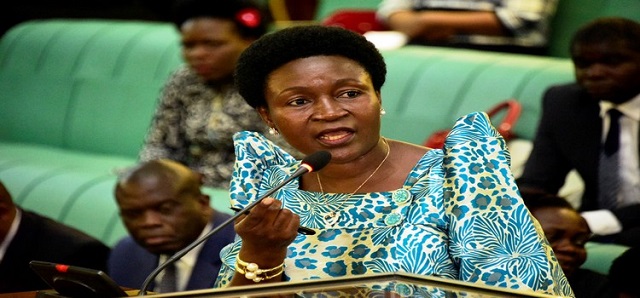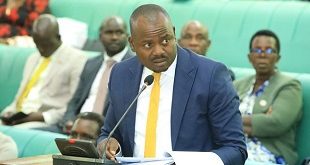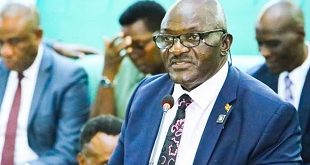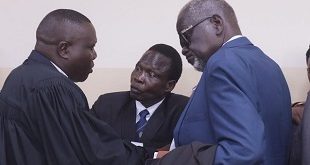
Kampala, Uganda | THE INDEPENDENT | Parliament has halted the implementation of the revised lower secondary curriculum, which among others scraps termly examinations. The decision followed an extensive debate on the ministerial statement presented by the Primary Education State Minister, Rosemary Sseninde on the matter during plenary on Tuesday.
Last week, the Deputy Speaker of parliament, Jacob Oulanyah directed the Education minister to address Parliament on the implementation of the new curriculum scheduled to start this term. The curriculum was developed by the National Curriculum Development Centre (NCDC).
The new curriculum replaces termly exams with projects that students will undertake every end of topic. Teachers will then be required to note the student’s progress before any other topic is introduced. However, teachers will be administering end of year exams in order to give feedback to parents and guardians.
Prior to the presentation of the statement, on Monday a group of legislators called on government to halt the implementation of the new curriculum on grounds that some vital subjects had been made optional and that there were not sufficient consultations.
However, on Tuesday, Sseninde insisted that government will not halt the implementation of the new curriculum, saying it will be applied to Senior One students. She tabled sample books of the revised curriculum before parliament chaired by the Speaker, Rebecca Kadaga.
She asked parliament to support the Education Ministry to implement the new curriculum so that it improves the country’s Education and improve what children learn.
According to Sseninde, the current curriculum was designed in the 1960s mainly to produce human resource for white collar jobs. She however said government has a different development agenda to address the country’s transformation.
“We note that lower secondary level is still Basic education. Learners are exposed to a variety of subjects to widen their scope of thinking and enable their intellectual ability to grow. The cognitive growth is enhanced through exposure among other things. At this level we are not yet going into career paths but exposed to what one can pick interest in or is about to do. The curriculum is competence based aimed at exposing the learners to issues of creativity and innovativeness and emphasizes values which have been a challenge,” reads part of Sseninde’s statement.
She said that major changes in the curriculum are the methodologies, emphasis on values, assessment modalities, reduction on instruction time from 8:00am to 2:55 pm and compulsory teaching of Kiswahili among other things.
“The materials have all been developed including the senior one textbook which is being used to kick start the implementation of the lower secondary curriculum. The distribution is ongoing in preparation for the senior one who are reporting on 17th February 2020. The process for procurement of textbook from publishers is on-going and the books for senior one and two are expected to be supplied in July,” said Sseninde.
Parliament also learnt that private school teachers have been included in the curriculum review process and that some of their staff participated in its development.
“Some of them have been trained as master trainers and they are now participating in the training of the 20,000 teachers nationwide. Government has issued all syllabus books to private schools free of charge, they have also been supplied with the necessary instructional materials,” She explained.
Her submission generated a heated debate that lasted for over 5 hours with several legislators cautioning government against rushing the implementation of the new curriculum without the required human resource and providing adequate time for the transition.
The Shadow Education Minister, Mathias Mpuuga, said what government developed cannot pass for a curriculum reforms but a small adjustment in the curriculum. He maintained that government wasn’t ready to implement the curriculum, saying it should be rolled back.
He wondered why the Education Ministry was in panic, saying that one cannot talk about a change in assessment without taking time to develop assessment tools and adequately prepare the trainers how to do so.
Kira Municipality MP, Ibrahim Ssemujju Nganda said that the new curriculum has caused confusion in schools.
The Igara East MP, Michael Mawanda questioned why government was not giving time to schools to understand the new curriculum before rushing its implementation.
The Speaker also questioned whether teachers upcountry were being trained.
The Budadiri West MP Nathan Nandala Mafabi moved a motion for the suspension of the implementation of the new curriculum implementation until MPs are satisfied with it and adequate consultations are made with all stakeholders.
He was seconded by the Kasilo County MP, Okupa Elijah and Kiboga East MP, Keffa Kiwanuka. MP unanimously voted suspending the curriculum implementation when the speaker put the matter to a vote.
******
URN
 The Independent Uganda: You get the Truth we Pay the Price
The Independent Uganda: You get the Truth we Pay the Price



It’s so sad that this too is turning out to be political, the education reforms are long overdue; it is so sad that members of parliament oppose everything for the sake of opposing. There has been enough publicity about the new curriculum, why suffocate it at the time of implementation, when we be ready? We are greatly indebted to the generations of today and tomorrow.
the Ugandans has suffered for many years in education system that could not give proper skill learning to hour students. Please, if Uganda is registering a new change in the line of education, why do we say no? Lets leave those who doesn’t want change to remaine down as we move forward. Thanks
What Parliamenterians Did Was Good B’se Most Schools Did Nt Participate In The Training